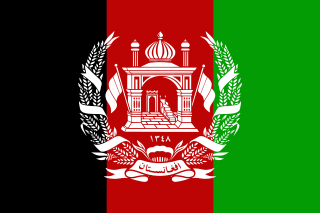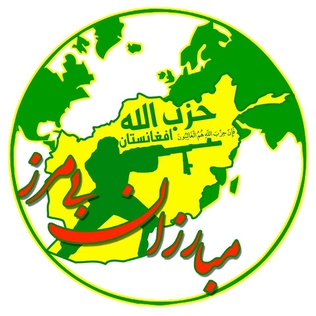History
| Part of a series on |
| Sindhis |
|---|
 |
 Sindh portal |
Many Sindhis came as merchants to Afghanistan during the period of the British Raj in Colonial India during the 19th-century, along with Punjabi Sikhs. [3]
An editor has nominated this article for deletion. You are welcome to participate in the deletion discussion , which will decide whether or not to retain it. |
| Total population | |
|---|---|
| 25,000 [1] | |
| Regions with significant populations | |
| Kabul, [2] Qandahar, Herat | |
| Languages | |
| Sindhi, Lasi, Balochi, Dari, Pashto | |
| Religion | |
| Islam (Sunni) | |
| Related ethnic groups | |
| Baloch, Pashtun, Punjabi |
The Sindhis in Afghanistan, (Sindhi : افغانستان ۾ سنڌين, Pashto : سندیان په افغانستان) are part of Sindhi diaspora in South Asia. Most Sindhis are indigenized in Afghanistan and live primarily in Kabul.
| Part of a series on |
| Sindhis |
|---|
 |
 Sindh portal |
Many Sindhis came as merchants to Afghanistan during the period of the British Raj in Colonial India during the 19th-century, along with Punjabi Sikhs. [3]
The Aimaq, Aimaq Persians, or Chahar Aimaq, also transliterated as Aymaq, Aimagh, Aimak, and Aymak, are a collection of Sunni and mostly Persian nomadic and semi-nomadic tribes. They live mainly in the central and western highlands of Afghanistan, especially in Ghor and Badghis. Aimaqs were originally known as chahar ("four") Aymaqs: Jamshidi, Aimaq Hazara, Firozkohi, and Taymani. The Timuri, which is a separate tribe but is sometimes included among Aimaqs, which is known as Aimaq-e digar.

The national flag of the Islamic Emirate of Afghanistan, adopted on 15 August 2021 following the Taliban's victory in the 2001–2021 war, features a white field with a black Shahada inscribed. Since the 20th century, Afghanistan has changed its national flag several times. The national flag had black, red and green colors most of the time during the period.

The prime minister of Afghanistan, officially the prime minister of the Islamic Emirate of Afghanistan, is the head of government of Afghanistan.

Afghanistan Liberation Organization is a Maoist political group in Afghanistan. It was founded by Faiz Ahmad and some others in 1973. ALO is one of several organizations that grew out of the Sholaye Javid movement. ALO was originally named Revolutionary Group of the Peoples of Afghanistan ; it was renamed in 1980.

The chief justice of Afghanistan is the head of the Supreme Court of Afghanistan. The current chief justice is Abdul Hakim Haqqani, who has been a finding member of the Taliban.

The Islamic Dawah Organization of Afghanistan is a political party in Afghanistan led by Abdul Rasul Sayyaf. Founded in the early 1980s as the Islamic Union for the Liberation of Afghanistan, it was originally an attempt to bring unity amongst Islamist opposition forces in Afghanistan. However, the creation of the new umbrella organization effectively created a split and the organization became a political party of its own. The organization was part of the 'Peshawar Seven', the coalition of mujahedin forces supported by the United States, Pakistan and various Arab states of the Persian Gulf in the war against the PDPA government, Soviet forces and Ba'athist Iraq. Through the financial aid received from Saudi sources, the organization was able to attract a considerable military following. Arab volunteers fought in the militia forces of the organisation.
The Afghan Independent Human Rights Commission (AIHRC) is a national human rights institution that was created during the Islamic Republic of Afghanistan, dedicated to the promotion, protection, and monitoring of human rights and the investigation of human rights abuses. As of May 2022, during the de facto Taliban government of Afghanistan, the status of the AIHRC is disputed between the Taliban, who have declared the AIHRC to be dissolved, and the AIHRC itself, which sees the Taliban government as nationally and internationally illegitimate, and without the power to dissolve the AIHRC.
Sex segregation refers to the physical and spatial separation of humans by sex in public or private places. In public places, women are forced to wear the burqa at all times, because, according to one Taliban spokesman, "the face of a woman is a source of corruption" for men not related to them (Non-Mahram).
Current and past governments of Afghanistan have included a Minister of Justice in the Afghan cabinet.

The Kingdom of Afghanistan was a monarchy in Central Asia that was established in 1926 as a successor state to the Emirate of Afghanistan. It was proclaimed by its first king, Amanullah Khan, seven years after he acceded to the throne. The monarchy ended in the 1973 Afghan coup d'état.

National Olympic Committee of the Islamic Republic of Afghanistan, formerly Afghanistan National Olympic Committee is the National Olympic Committee representing Afghanistan.
The Embassy of Afghanistan in Islamabad is the diplomatic mission of the Islamic Emirate of Afghanistan to Pakistan.
The Afghan Ministry of Transport and Civil Aviation is the Afghan Government Ministry in charge of the management of air and ground transportation, operation of airports and the national airline, as well as numerous other state-owned enterprises engaged in the transport business. As of 2021 the minister is Hamidullah Akhundzada.

The Tajikistan national cricket team represents the country of Tajikistan in international cricket. It is administered by the Tajikistan Cricket Federation. Tajikistan has been a member of Asian Cricket Council since 2024. They were granted associate status by the International Cricket Council (ICC) in July 2021.

The Afghan Armed Forces, officially the Armed Forces of the Islamic Emirate of Afghanistan also referred to as the Islamic Emirate Armed Forces, is the military of Afghanistan, commanded by the Taliban government from 1997 to 2001 and since August 2021. According to Afghanistan's Ministry of Defense, its total manpower is 170,000.

The Supreme Leader of Afghanistan, officially the Supreme Leader of the Islamic Emirate of Afghanistan and also styled by his religious title Amir al-Mu'minin, is the absolute ruler, head of state, and national religious leader of Afghanistan, as well as the leader of the Taliban. The supreme leader wields unlimited authority and is the ultimate source of all law.

Sindhi Bhil, is an Indo-Aryan dialect spoken in the Pakistani province of Sindh, as well as some parts of Balochistan. Sindhi Bhil is often referred to as a Sindhi dialect rather than a separate language alongside Lasi.

Hezbollah Afghanistan is a Shia Islamist political party in Afghanistan. It was originally founded in 1980 as a rebel group and part of the Tehran Eight, and fought with Iranian support during Soviet–Afghan War. In 2005, it became a legal party, and in the 2010s it developed close connections with Liwa Fatemiyoun, an Afghan paramilitary force organized by Iran.

Sindhi Canadians refer to Sindhis that are citizens of Canada or those that have ancestry or heritage from Sindh, Sindhi Canadians come under the global Sindhi diaspora. The population of Sindhis in Canada is estimated between 8,385 or 11,000 Sindhis in Canada. mainly concentrated in Toronto